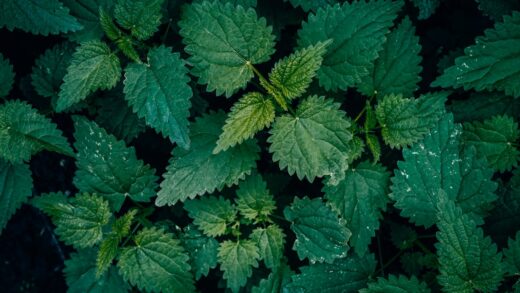ENTRY IVY-1 — “The Willow at the End of the Path”
Location: Ivyfold (Southern Blooming Path)
Filed By: Head Archivist Keyra Thorne
Curio Match: PENDING
Abstract:
Personal account reconstructed from a private letter discovered within the hollow of a Pendula willow along the overgrown southern arm of the Blooming Path. Subject appears to be a returning Hortus Reader, formerly recorded under a different name. This entry is notable for its symbolic resonance with the Ivyfold’s post-abandonment regeneration cycle.
Researcher Notes:
→ The Blooming Path responded positively to the subject’s presence, indicating possible lineage recognition or individual resonance override.
→ Suggest follow-up on the role of “memory trees” and their function in intergenerational communication.
Content Tags: gender & growth, memory flora, seasonal pathways.
Note: Entry approved for general archive access
Narrative follows.
The bamboo forest bloomed when Ying was ten.
The gregarious kind, where every stalk, from the heart of the grove to the last shoot at the edge of town, flowered at once. No one had expected it. Not even the Hortus Readers, her parents among them, who had devoted their lives to charting the will of the land.
For a sanctuary town like Ivyfold, the flowering was a kind of catastrophe. The bloom took the water, the nutrients, the breath from the soil. Trees browned. Leaves fell out of season. Entire groves withered in the shadow of that impossible flowering. The sanctuary’s rhythm faltered, and as the green bled out of the sanctuary, so did many of its residents.
The thing was: Ying had bloomed too.
Not in one great, sudden gesture like the bamboo, but slowly, awkwardly, season after season, until the name her parents gave her felt like a pair of gloves she’d long since outgrown.
They’d named her for the Grand Tree. Aspirational. Enduring. They’d expected a son strong enough to carry on their name; one day a great Reader of vines and roots, a speaker of bloom signs. They did not foresee that their child would one day answer to another name. That she would read her own life differently from what they had first imagined.
They weren’t unkind, just shaken. Like stone walls faced with sudden new growth. Cracked in places that would take time to mend. Ying left when she was 16, looking for a place to plant her own roots. The years that followed were brittle and unsure, full of words half-said and visits too short. But now, they lived in an uneasy peace, made easier by distance. Her parents wrote on her birthdays. They stopped calling her by the old name.
And in spite of all that, ever the contrarian, Ying had followed in their footsteps. After all the hurt, after all the change, she too had become a Reader.
Now she was back at Ivyfold. Not for her family, not really. But for the library, and maybe for the smell of the moss, and the old frog pond, and the rustle of the wind through familiar leaves.
The town was quieter now. What remained were the pilgrims, the persistent, and the researchers who didn’t mind getting lost in the undergrowth.
The Ivyfold was no longer curated. The ritual gardens were mostly overgrown, disorderly but vibrant, like the land had taken back control with a slow, deliberate grace. The Blooming Path, which had once been carefully tended for ceremonial use, was now wild with uncatalogued foliage.
Still, when Ying stepped onto it, it bloomed.
That much hadn’t changed. The deep magic that made Ivyfold a sanctuary had seeded the path to respond to Readers and pilgrims, unfurling in colour with every step. As a child, the flowers that rose to greet her had been mostly nettle and thornbrush, blooms of discomfort and caution. She remembered how the green stung her ankles, as if the land itself was unsure of her.
Now: marigolds, zinnias and soft-petaled daisies. Vibrant and hardy wildflowers, whose gentle fragrances gently caressed her as she walked the path.
She didn’t realise she was crying until she reached the end.
The willow was still there, arched and crooked, dipping toward the earth like it was whispering a secret. Her secret tree, once. She used to tuck little things into its hollow: a ceramic bird from a broken wind chime, a tarnished coin, an acorn painted gold.
On a whim, she stepped off the path and climbed the familiar knots. The bark still remembered her. It gave a little under her hand, like a nod.
The hollow was a little messy but still recognisable. Birds had nested there once, and as she brushed away some of the twigs and leaves, she saw that some of the trinkets were gone, probably taken or rotted away. But the ceramic bird was there, lightly faded. The golden acorn too. And then, beneath a scrap of dried lichen, she saw it: an envelope.
Yellowed and worn with time.
She almost didn’t open it. But on the front was the mark of a cherry blossom. Her flower namesake. Ying.
Inside was a note, written in green ink that shimmered slightly when it caught the light. The handwriting wasn’t hers. It wasn’t her mother’s, or her father’s. But it was familiar. Like something half-remembered from a dream that made her feel brave. She read it.
“You are not late.
The flowers only needed time to become what you could walk within.
You did not betray the name they gave you.
You simply bloomed past it.”
Ying sat with it in her hands for a long time.
She did not try to guess who wrote it. Or when. She only knew that it was exactly what she needed, the sort of note she might’ve written to herself, if she’d believed, back then, that The Ivyfold would still have space for her.
Ying folded the note and tucked it into her satchel. She ran her fingers once along the bark of her tree. The wood felt warm from the sun.
Then she climbed down, slow and careful. The path was still blooming.
And for the first time in years, she didn’t wonder whether it was blooming for who she was, or who she would be.
It was simply blooming.



